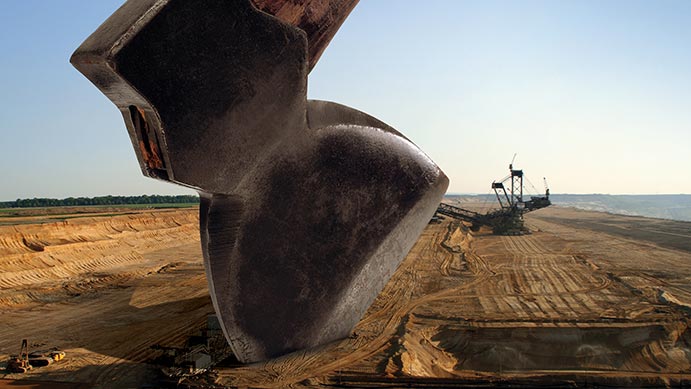Uncertainty is a crippling and debilitating thing, and sadly these days many people are finding themselves in exactly that state in the workplace, Mental Illness Fellowship of Queensland’s Tony Stevenson writes.
We hear plenty of stories of how people suffer when they lose their jobs, but what about those who live in chronic fear that their days in the workplace could be numbered?
Thanks to globalisation, outsourcing, contracting and downsizing, job insecurity is here to stay and the implications are serious and far-reaching – serious enough to influence government and workplace policy.
Some Scandinavian and other European countries have introduced the concept of flexicurity, where companies have flexible rules for hiring and firing, and the government provides strong financial safety nets and active job training for the unemployed.
In Denmark, for example, flexicurity is successfully managing the challenges of globalisation. Studies show that Danes are positive about globalisation and aren’t scared of losing their jobs, instead they’re seeking opportunities for new and better jobs.
While we’re unlikely to see that scenario in Australia, on the positive side, companies are beginning to understand how stress in the workplace affects people and productivity – but there is still a long way to go.
The mining industry is something of a “poster child” for uncertainty, with about one third of all mining-related jobs expected to disappear in the next couple of years.
It’s little wonder that job insecurity, compounded by long working hours, high production demands and isolation has been identified as the industry’s biggest stress trigger.
A report by AccessEAP (a provider of Employee Assistance Programs) found that job insecurity rose from 26 per cent to 31 per cent during the second half of 2013.
The massive personal toll can’t be underestimated, and in these times of uncertainty it’s vital that managers learn to communicate honestly, frequently and realistically, and address the worries of their workers.
It makes indisputable sense from a business perspective. The fact is insecure workers are not happy, productive workers.
Many managers and HR professionals report feeling less prepared and confident than they’d like to be, for managing mental health in their organisations, but the reality is that these days Occupational Health and Safety (OHS) obligations go well beyond providing a bandaid, a bed and a fire escape plan.
Generally speaking, people are pretty good at rolling with the punches, but long-term uncertainty is a totally different beast. Research in the US is showing that anticipating a major stressful event can be worse than the event itself.
When you don’t know whether your job will be around next year, or even next week, how do you plan for the future?
When we go to work each day fearing the axe will fall, we can’t make plans for the future, or when we feel powerless, we start to seriously stress out. We might pile on more work than we can handle, or not take sick days when we need them.
We start fuelling up on coffee and cigarettes, and missing out on the things that are good for us, like taking time to relax or exercise. Under chronic stress, our immune systems start to buckle under the pressure.
A recent study by the University of Michigan’s Population Studies Centre found that insecure workers were significantly more likely to meet the criteria for major or minor depression, and to report a recent anxiety attack. They concluded that many of those who managed to hang onto their jobs during the Great Recession (2007 to 2009) are getting mentally and physically ruined – often more so than those who have in fact lost their jobs.
The study found that chronic job insecurity was a stronger predictor of poor health than either smoking or hypertension. Months, even years, are shaved off of life expectancy.
When you don’t know whether your job will be around next year, or even next week, how do you plan for the future? What happens to dreams like buying a home? Saving to send your children to university? Retirement? In a climate of job insecurity, thoughts of any of these things bring instant panic instead of optimistic planning.
Your course of action isn’t clear because you don’t know whether or how the job loss will occur. There’s no intervention mechanism. You may become paranoid at work – and for good reason. Some managers have been known to try to get employees to quit and your relationship with coworkers can transform into cut-throat competition.
There is little doubt that job insecurity is eroding our quality of life.
In addition, suicide rates are known to increase during economic downturns, and middle-aged workers are especially vulnerable. Middle-aged workers may still have plenty to offer, but employers often consider them to be past their use by date.
In an economy with high youth unemployment, bosses know that there are plenty of young, inexperienced people who will work for lower wages while the jobs of older workers may be “restructured”, the pace sped up, the pay reduced.
In terms of mental illness, employers and managers are obliged to identify possible workplace practices, actions or incidents which may cause, or contribute to, the mental illness of workers, and take action to eliminate or minimise these risks.
It’s important to note that the people who most need help are often the least likely to ask for it. The stigma is still there, with many believing that showing any “weakness” will hurt their careers.
There are a number of signs that can indicate that a person is not coping mentally, including:
- Consistent late arrivals or frequent absences
- Lack of cooperation or a general inability to work with colleagues
- Decreased productivity
- Increased accidents or safety problems
- Frequent complaints of fatigue or unexplained pains
- Difficulty concentrating, making decisions, or remembering things
- Making excuses for missed deadlines or poor work
- Decreased interest or involvement in tasks
- Working excessive overtime over a prolonged period of time
- Expressions of strange or grandiose ideas
- Displays of anger or blame
Of course it’s important to realise that people may just be having a bad day, or week. However, if a pattern continues for a longer period it may indicate an underlying mental health problem.
Fundamentally, nobody likes to admit they’re feeling a loss of control and failure, not to mention feeling hopeless about future prospects.
For the individual first and foremost it is important to accept that you’re dealing with something that is having a major impact on you.
Talk about what’s happening – to others at work, at home and in your circle of friends. They may not come up with any practical answers, but even just sharing your situation is a reminder that you are not alone in the way you feel.
Don’t bury your head in the sand, and think that you will be immune to company cutbacks. You need to plan for alternatives, or just keep your mind open to other opportunities that could be out there for someone with your skills.
Make use of any employee assistance programs available to you, such as free counselling.
Keep an eye on people you know who are prone to depression or anxiety, or even just have a tendency to be a bit negative – be aware this is a high risk time for those traits to create problems.
Write down your worries, your feelings, hopes and dreams. Research shows keeping a journal, where you write about what you’re feeling emotionally, can help build the courage and inspiration to ride out crises like job loss.
Opt for an uplifting environment. Surround yourself with positive people, and avoid depressing news stories or movies. Definitely avoid friends who drink to excess.
Finally, look after yourself physically. It might sound pretty basic, but exercising, healthy eating and a good night’s sleep can be powerful stress fighters.
Organisational change is a fact of life. Our desire for better, cheaper products means that companies have to respond, not only for the health of their bottom line, but also the health of their workers who are dealing with unstable times.
Job insecurity is one of the many stresses people face at work, and many will suffer in silence with depression and anxiety.
We need to create an environment at work that allows people to be open about what they are going through, without fear of being judged or penalised.
Mental Illness Fellowship of Australia
If you, a family member, friend or work colleague have a question about mental illness, or are looking for support in your local area, contact Mi Networks by phoning 1800 985 944 from anywhere in Australia, or visiting www.minetworks.org.au.
Mi Networks is an initiative of the Mental Illness Fellowship of Australia (MIFA) and is supported by its members nationally.
If you feel your workplace could benefit from a mental health audit, or other assistance in creating a healthy and supportive environment for all workers, contact your local MIFA member.
Visit www.mifa.org.au.














Add Comment